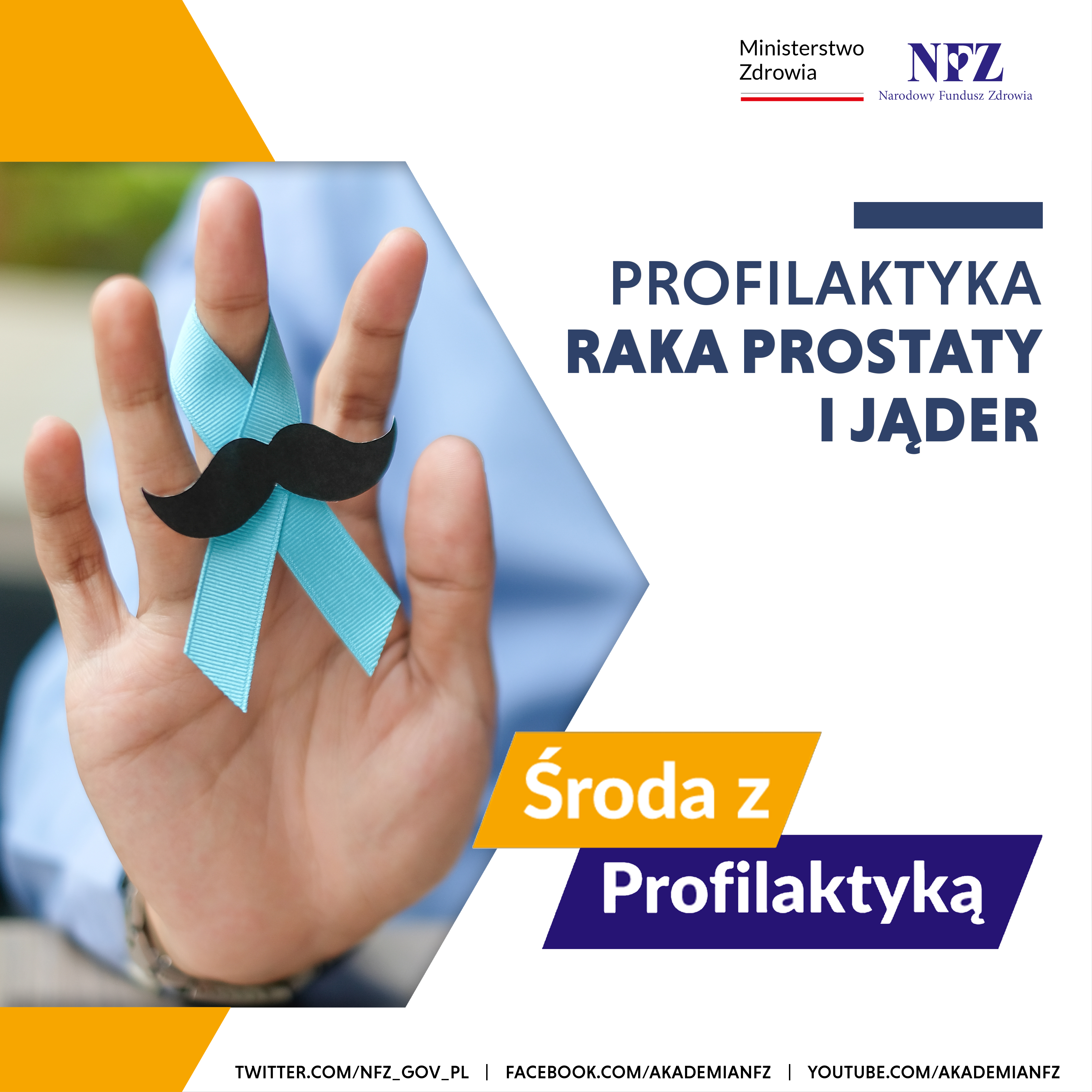"Prevention for a healthy man". This is a material from the National Health Fund, prepared as part of the "Wednesdays with Prevention" in connection with the November action Movember.
In the diagnosis and treatment of male cancers, the role of prevention is crucial.
Men are more likely to neglect their health than women. They report to the doctor, only when painful symptoms occur. Many men do not carry out regular preventive examinations.
Meanwhile, genitourinary diseases affect one in three men.
The most common male cancer is prostate cancer. It accounts for 15.5 per cent of all cases, and this percentage continues to rise.
Testicular cancer mainly affects young men. Seventy per cent of cases of this type of cancer occur in people between the ages of 20 and 39.
Join the action Movember!
At any age, remember to have regular testicular self-examinations. A significant proportion of cases occur in men between the ages of 14 and 35. In 95 per cent of cases, it can be completely curable. The condition is its early detection.
After the age of 40, have your prostate examined regularly (PSA and urology consultation). You will receive a referral to a urologist from your GP.
After the age of 60, have an abdominal ultrasound once a year to assess, among other things, the kidneys and bladder.
Detecting the disease at an early stage of development increases the chances of a cure. It can take several years between the first cancer cells and the onset of disease symptoms.
Male cancers
What is meant by this term? Which risk factors can we eliminate and which are beyond our control? What lifestyle changes are worth making? Which tests should men undergo and when?
We recall a men's conversation with an expert in which Kamil Kuć, MD, specialist in clinical oncology from the Przemyśl Regional Hospital answers important questions. It points out which male cancers are most common and who may be at risk, and suggests how to persuade men to get tested.
See the expert's statement on the NFZ Academy YouTube channel:

